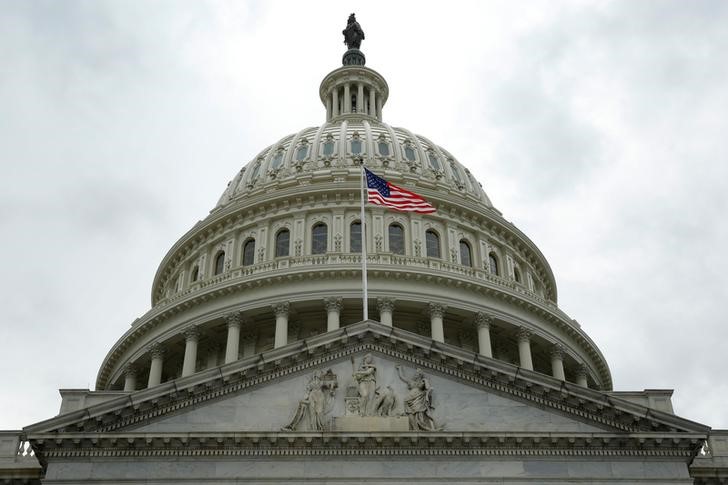C3is Inc. closes $2 million registered direct offering
Investing.com - A bill currently working its way through the Senate could cause the massive U.S. debt pile to expand even further and the federal budget shortfall to rise from already elevated levels, according to analysts at UBS.
Senators on Capitol Hill are currently discussing the so-called "One Big Beautiful Bill Act," a package backed by President Donald Trump that includes tax reductions and increases in spending on defense and immigration enforcement.
Citing data from the Congressional Budget Office, the analysts at UBS said the measure stands to add more than $3 trillion to a U.S. debt pile that currently amounts to roughly $36.2 trillion -- or over 120% of U.S. gross domestic product.
The CBO has also found that, under the current provisions of the bill being debated in the upper chamber of the U.S. Congress, budget deficits would jump to around 7% of GDP in 2027, up from 6.4% last year.
While the U.S. House of Representatives has approved their version of the package, the Senate must still sign off on its own changes. Reports have suggested that some Republicans, who control both chambers of Congress, remain at odds with the wider party over sections of the bill, particularly over the possible ballooning effect its spending proposals would have federal debt.
Investors have also voiced concerns over the trajectory of U.S. debt, sending term premia for longer-dated U.S. Treasuries higher. Term premia refers to the extra return investors demand for holding long- versus short-dated bonds.
"Debt worries are also a concern for equity investors, given their impact on financing costs and the implications for future tax levels," the UBS analysts wrote in a note.
However, the brokerage noted that the Federal Reserve’s "strong credibility" as well as the reserve-currency status of the U.S. dollar and "deep" stock markets "suggest the U.S.’s ability to repay debt is not in question."
"Ultimately, growth remains the key lever: Prudent (NSE:PRUE) trade and tariff policies must balance revenue and recession risks, while AI-driven productivity gains, power infrastructure investments, and demographic tailwinds are essential to drive GDP growth and stabilize or reverse the debt trajectory," the strategists said.
